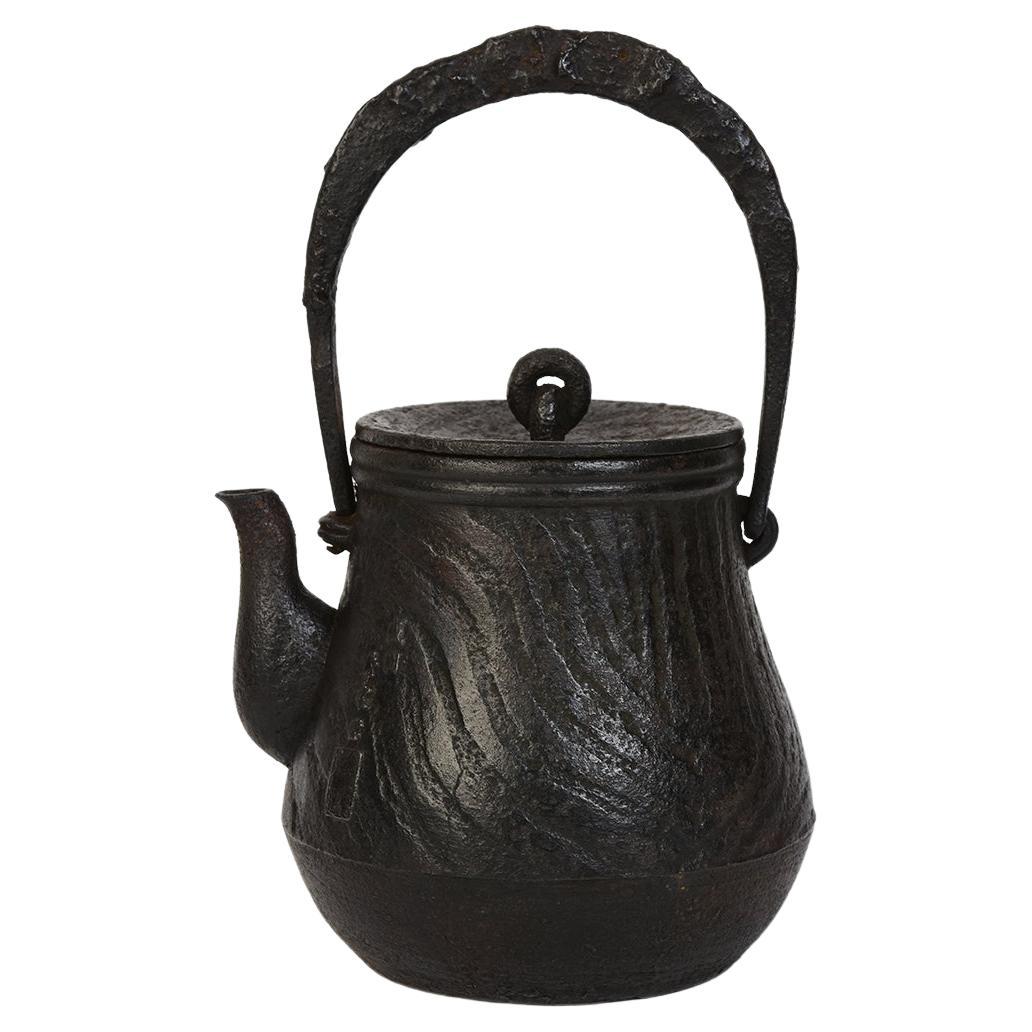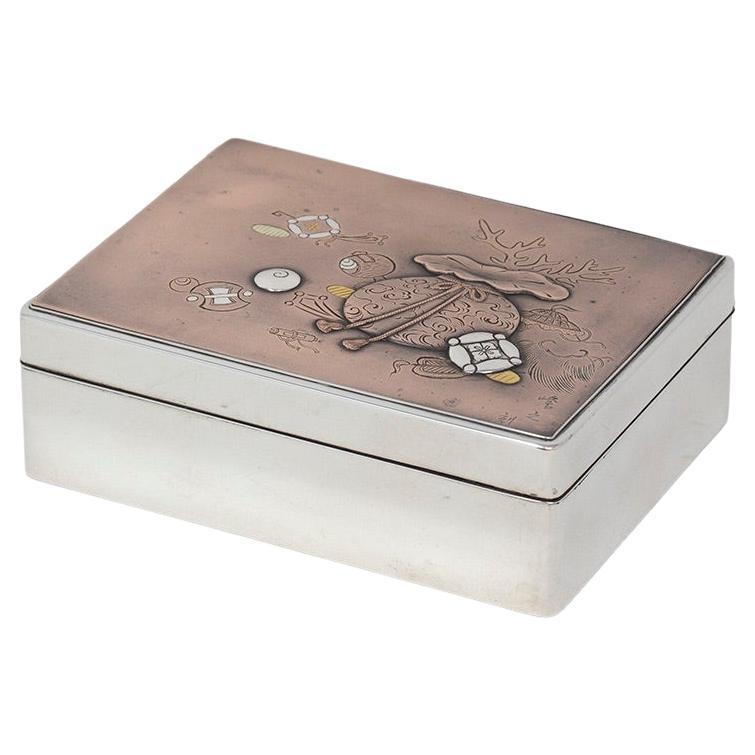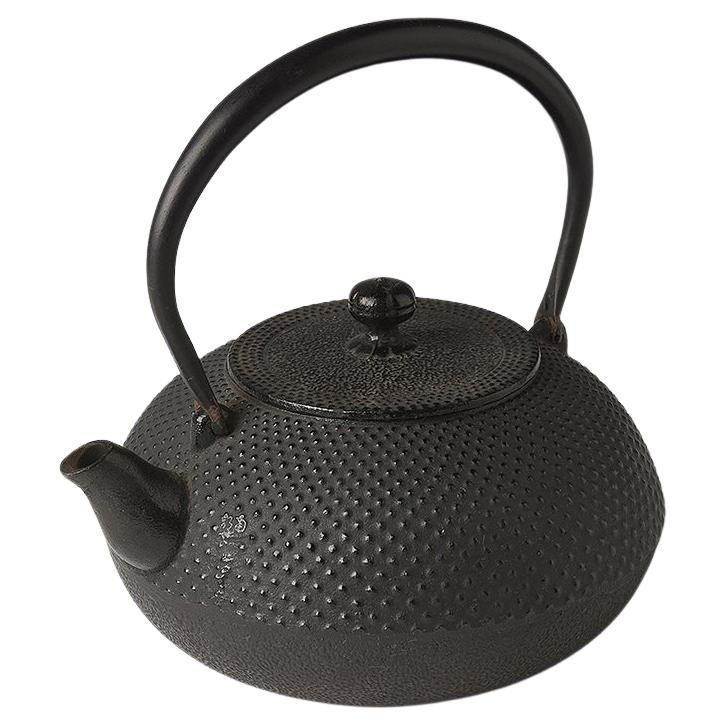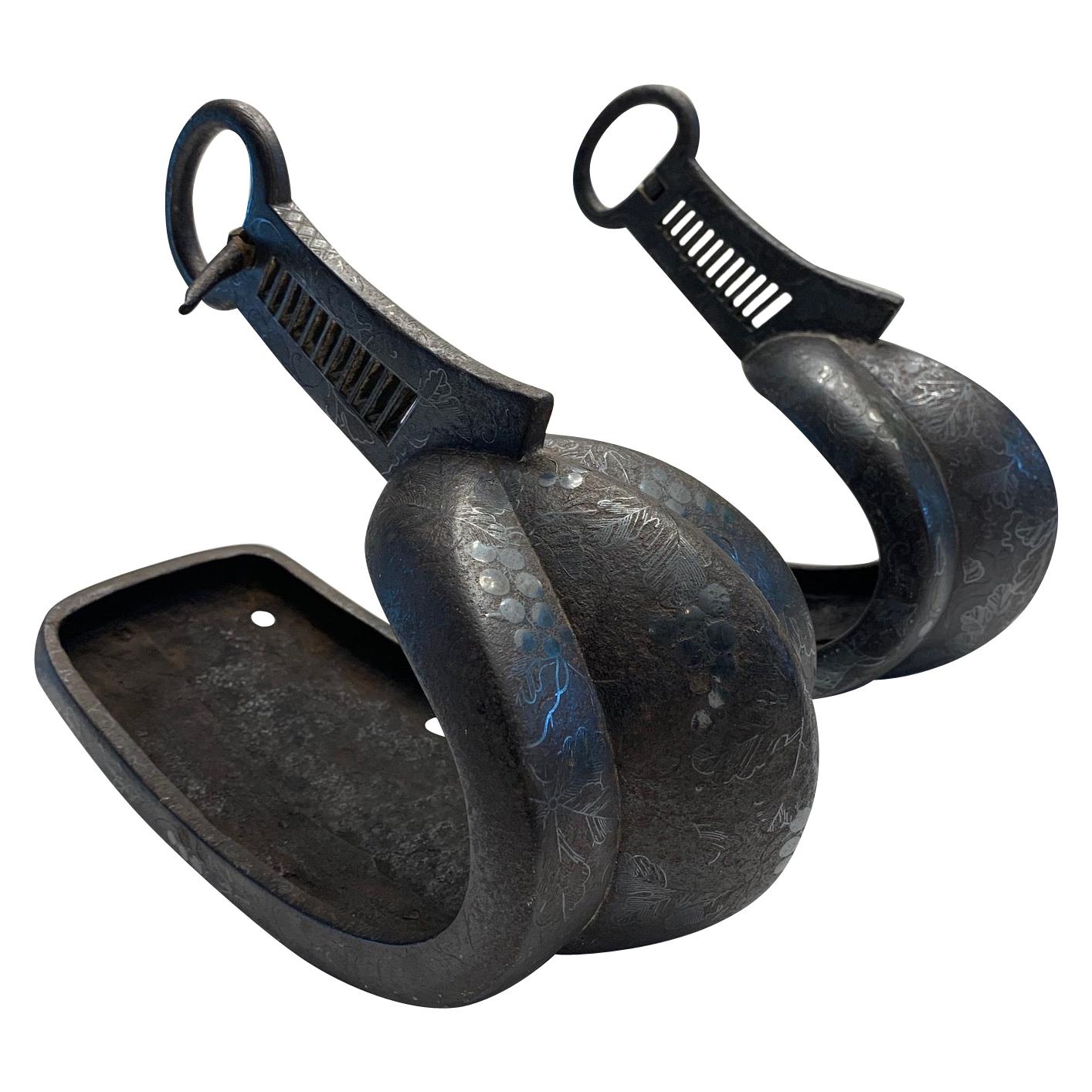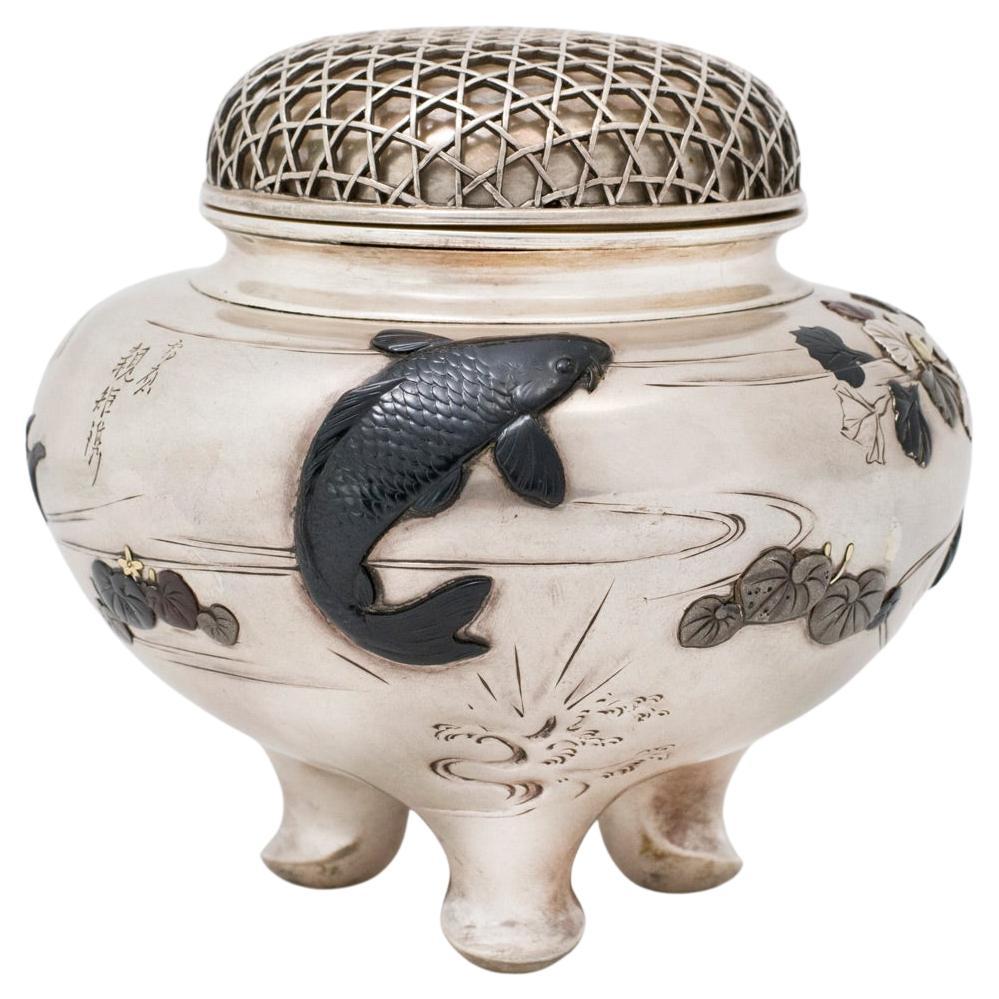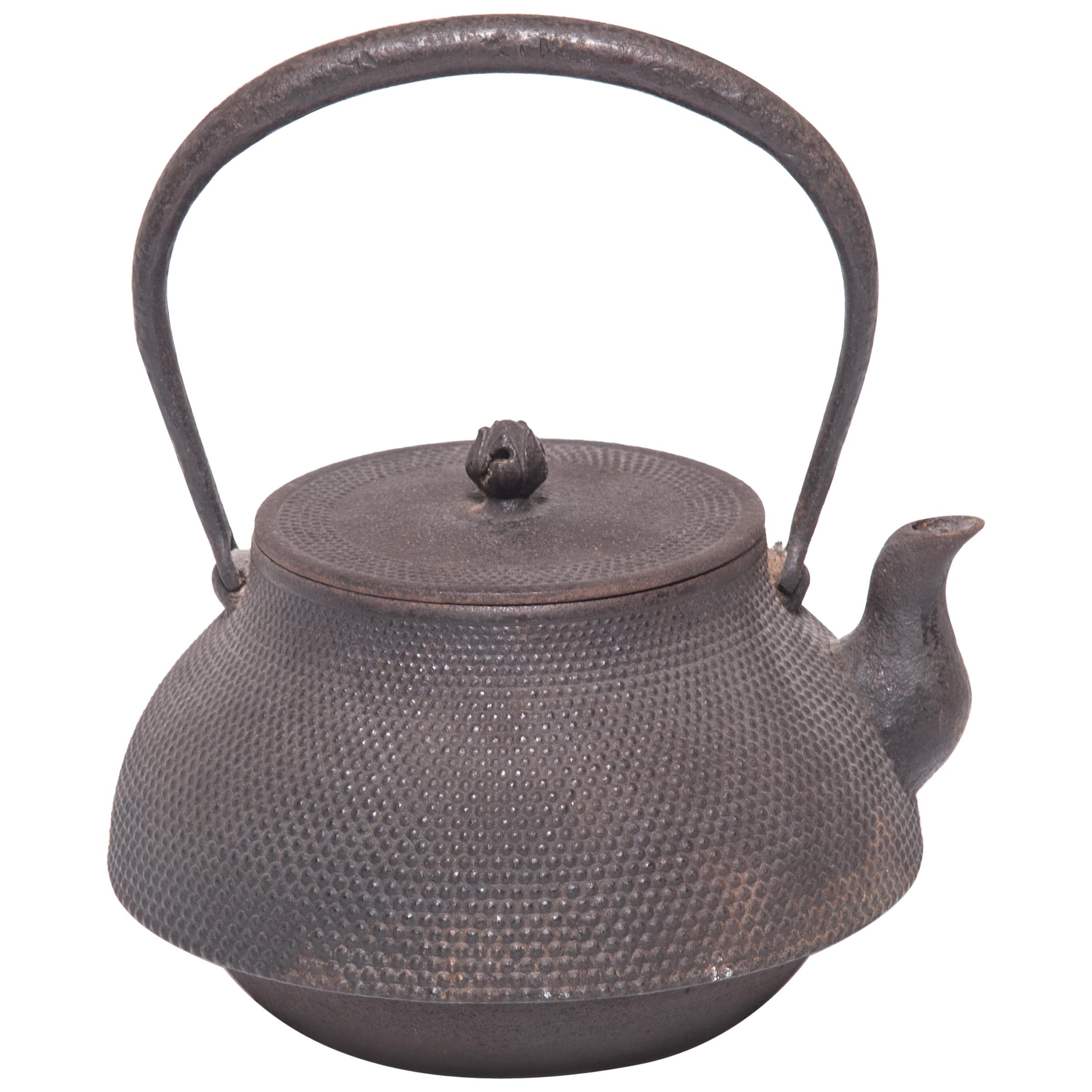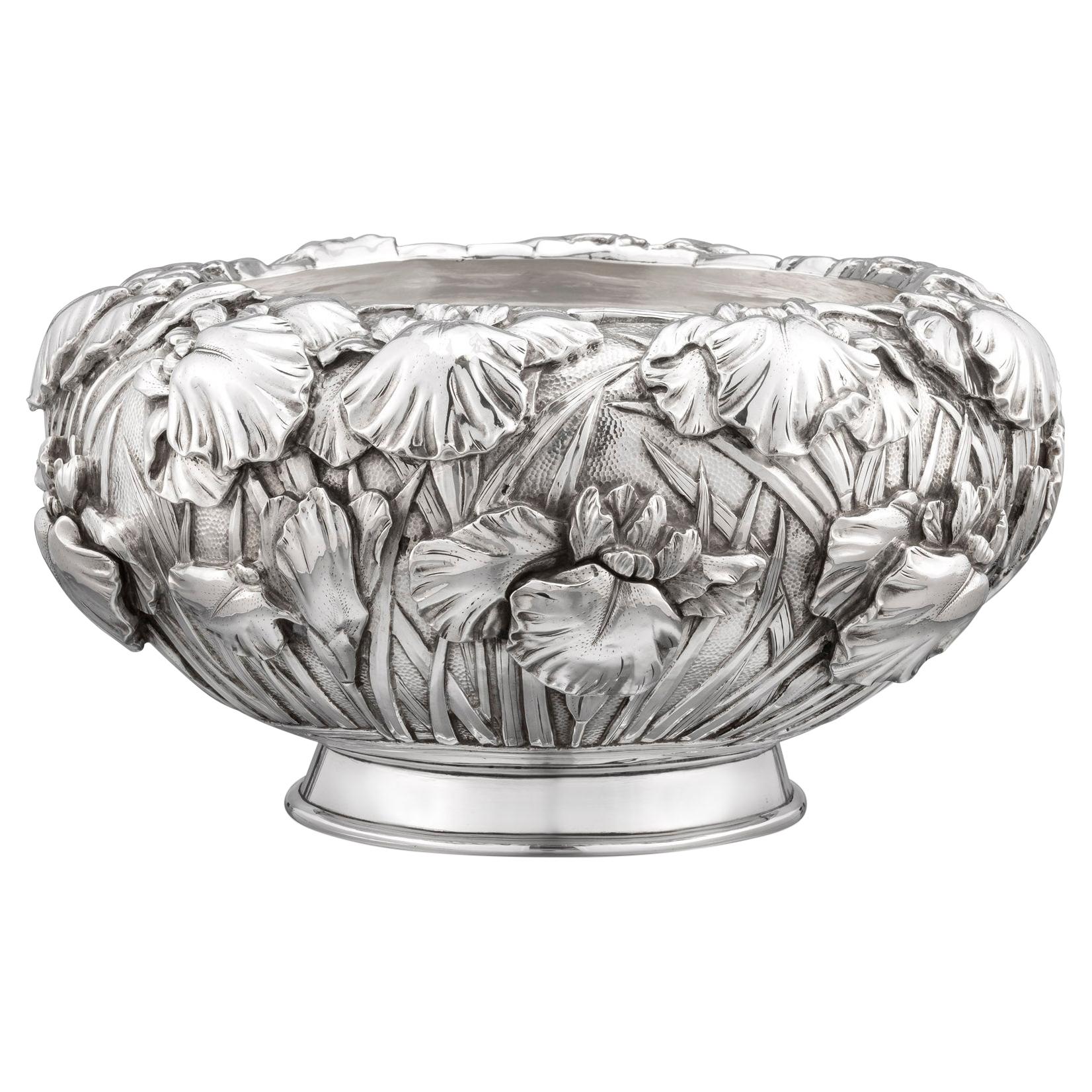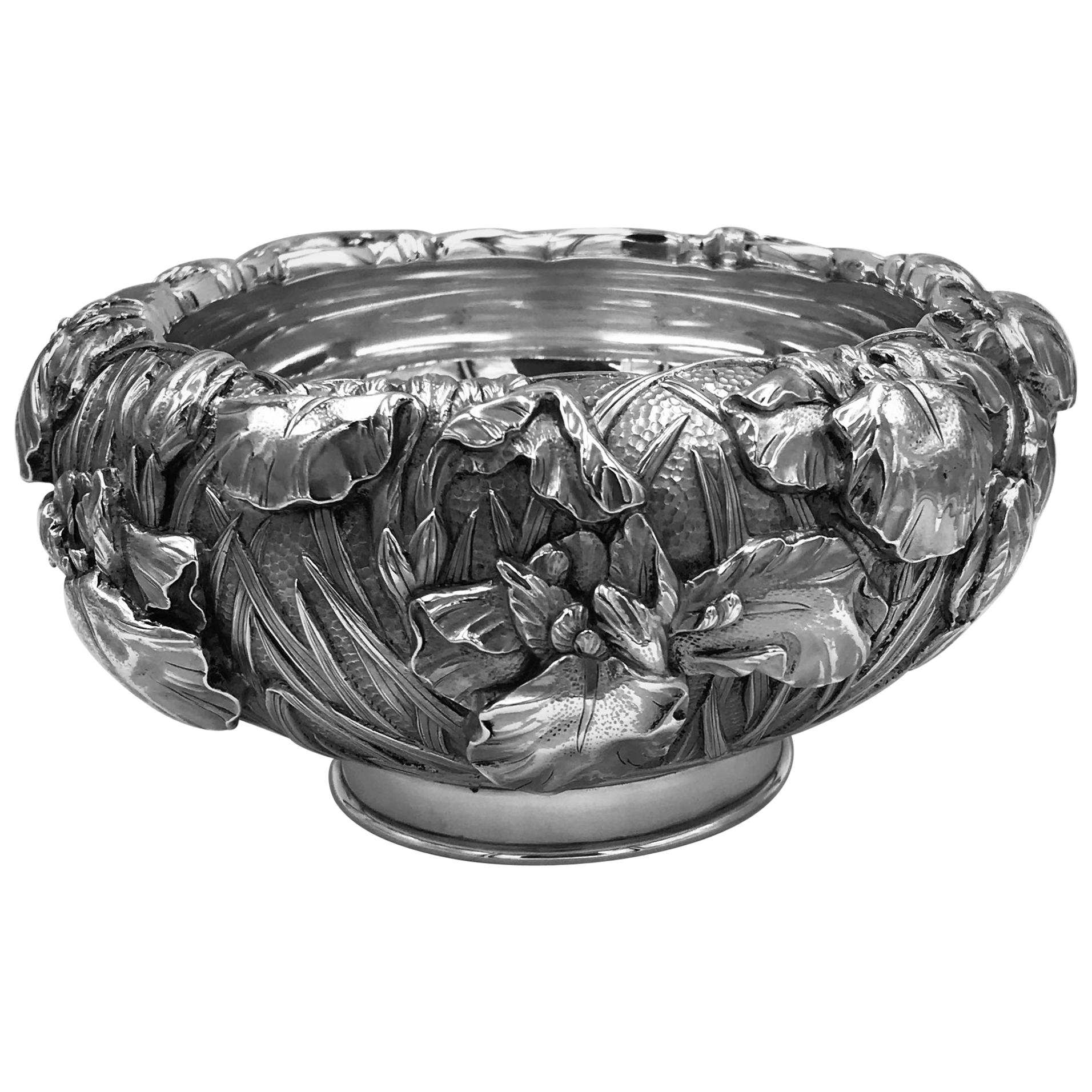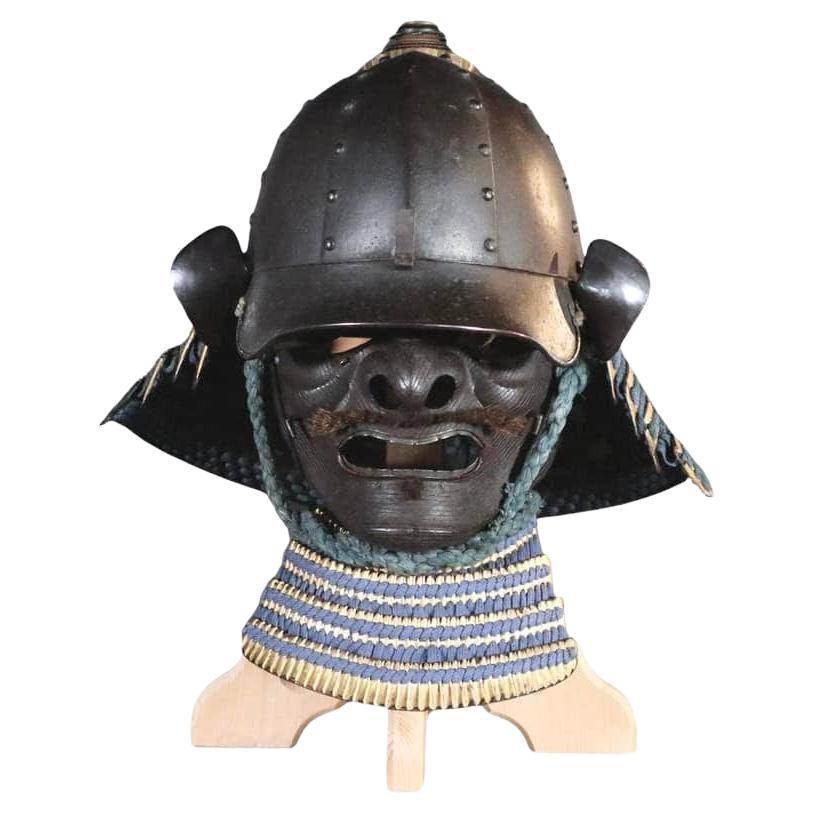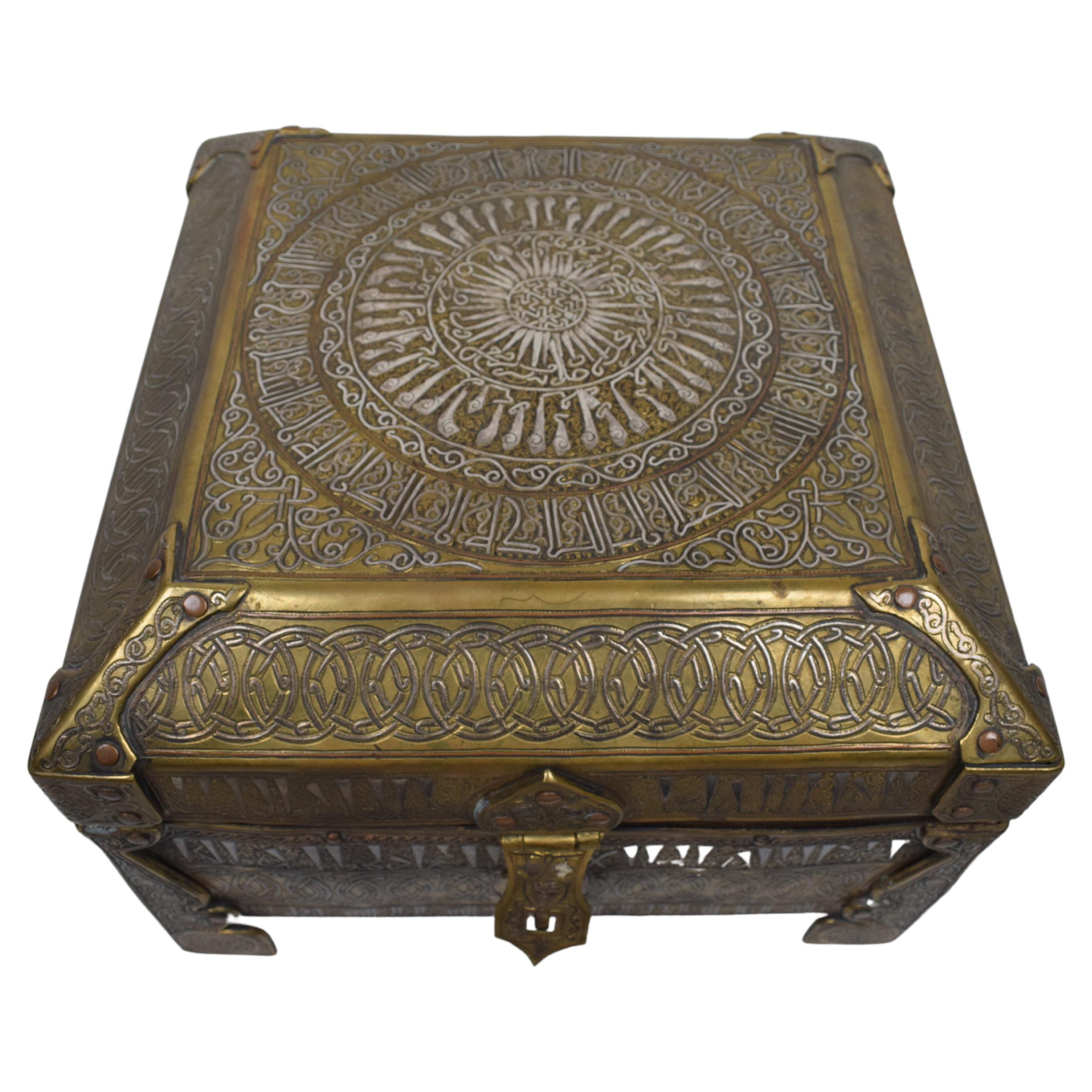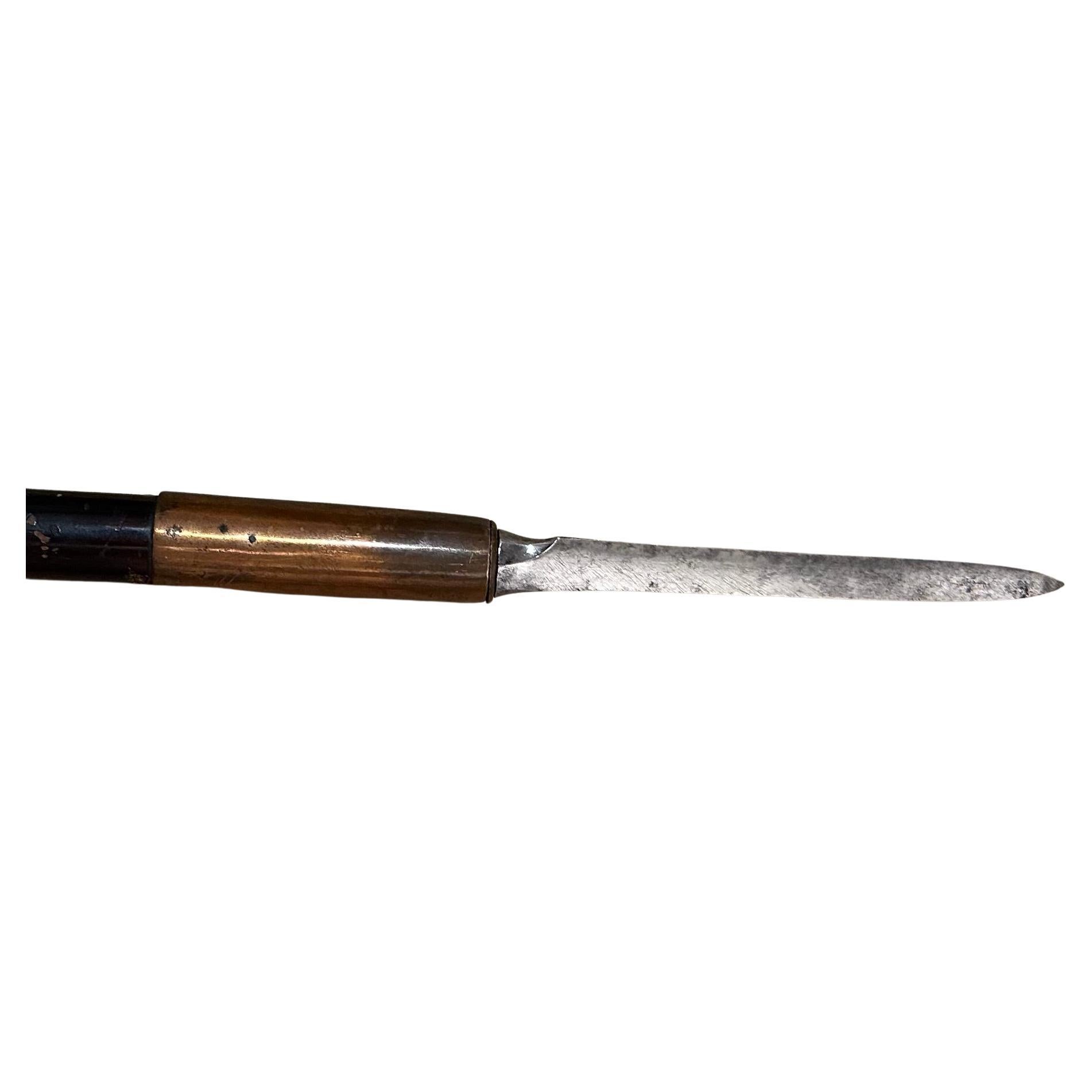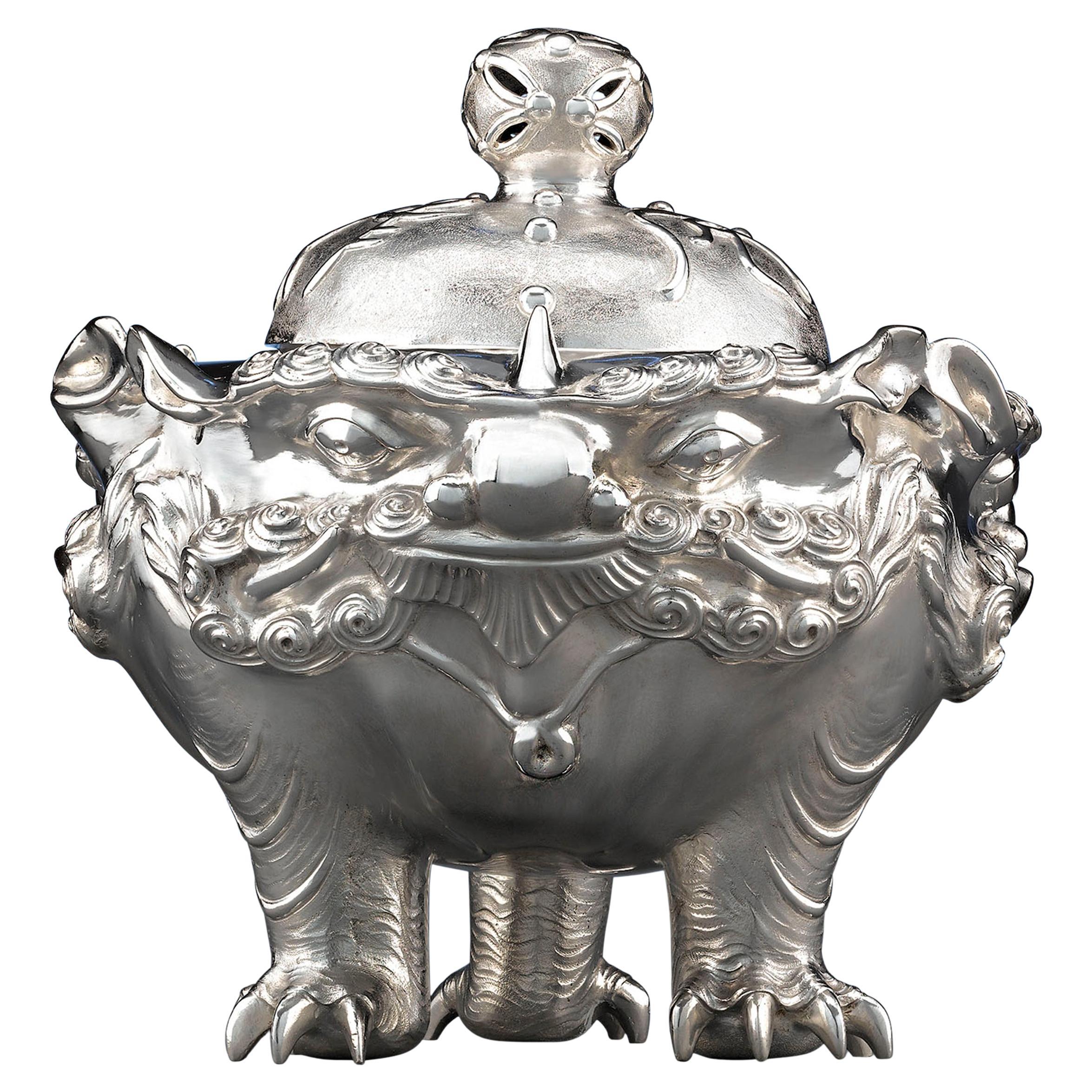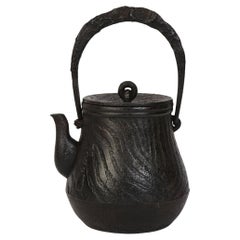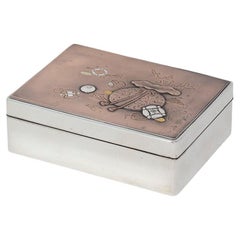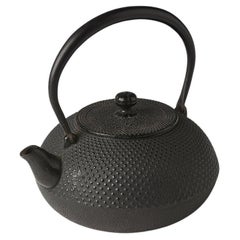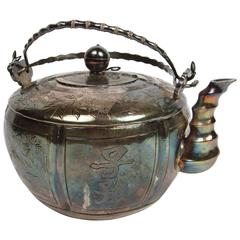
Signed Japanese Silver Calligraphic Teapot
View Similar Items
1 of 4
Signed Japanese Silver Calligraphic Teapot
About the Item
- Dimensions:Height: 4 in (10.16 cm)Width: 5.5 in (13.97 cm)Depth: 4 in (10.16 cm)
- Materials and Techniques:
- Place of Origin:
- Period:
- Date of Manufacture:Unknown
- Condition:Slightly tarnished, needs a good polish!
- Seller Location:Concord, MA
- Reference Number:Seller: AE70611stDibs: LU117725237493
You May Also Like
- 19th Century, Meiji, Antique Japanese Iron Teapot with Artist SignLocated in Sampantawong, THJapanese iron teapot with artist sign. Age: Japan, Meiji Period, 19th Century Size: height 24.3 cm / width 16 cm Condition: Nice condition ov...Category
Antique 19th Century Japanese Antiquities
MaterialsIron
$2,560 Sale Price20% Off - Japanese Meiji Period Silver Box Signed MasayukiLocated in Newark, EnglandJapanese Meiji period silver box with shibuichi plaque dating circa 1900. The box of rectangular form with a silver polished case stamped Jungin (J...Category
Antique Early 1900s Meiji Metalwork
MaterialsSilver
- Mid-20th Century, Showa, Japanese Steel TeapotLocated in Sampantawong, THJapanese steel teapot with nice design. Age: Japan, Showa Period, Mid-20th Century Size: Height 20.8 C.M. / Width 21 C.M. Condition: Nice condition...Category
Mid-20th Century Japanese Metalwork
MaterialsMetal
$1,504 Sale Price20% Off - Antique Japanese Iron Stirrups with Silver Inlay SignedLocated in Atlanta, GAA pair of antique Japanese Abumis, stirrup for horse-riding, in cast iron with elaborate silver inlay, circa 16th century Muramachi to Momoyama period. The prototype of Japanese abum...Category
Antique 16th Century Japanese Japonisme Metalwork
MaterialsSilver, Iron
- Japanese Silver and Mixed Metal Koro, Artist SignedLocated in Christchurch, GBAs part of our Japanese works of art collection we are delighted to offer this super quality Meiji Period 1868-1912, pure silver and mixed metal koro or incense burner, the heavy sil...Category
Antique 19th Century Japanese Meiji Metalwork
MaterialsMetal, Silver
- Textured Japanese Tetsubin Teapot with Lotus Bud Knob, c. 1900Located in Chicago, ILDecorated with a dotted, textured surface and an elegant arched handle, this Japanese teapot was used to boil water for traditional tea ceremonies. Known as tetsubin, the kettle’s cast-iron construction is said to change the quality of the water, making tea taste mellow and sweet. Made by pouring iron into clay or sand molds, the kettle has a rustic texture in pleasing contrast to its unusual angular form and incised lid, which bears a knob in the shape of a lotus bud...Category
Early 20th Century Japanese Meiji Metalwork
MaterialsBronze, Iron
